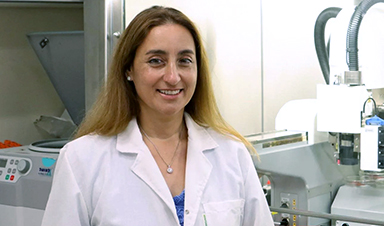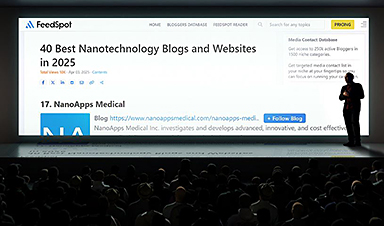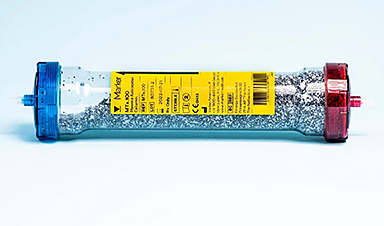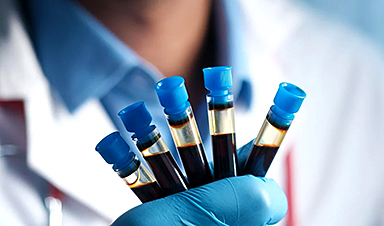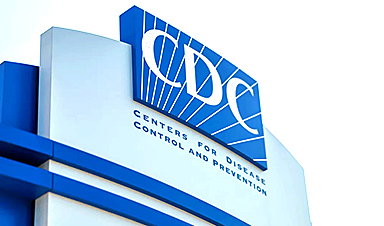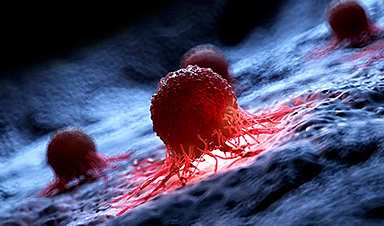A new nano-vaccine developed by TAU and the University of Lisbon offers a needle-free, room-temperature-storable solution against COVID-19, targeting all key variants effectively.
Professor Ronit Satchi-Fainaro’s lab at Tel Aviv University’s Faculty of Medical and Health Sciences has collaborated with Professor Helena Florindo’s lab at the University of Lisbon to develop a novel nano-vaccine for COVID-19. This nano-vaccine, a 200-nanometer particle, effectively trains the immune system against all common COVID-19 variants, performing as well as existing vaccines.
Unlike other vaccines, it is conveniently administered as a nasal spray and does not require a cold supply chain or ultra-cold storage. These distinctive features pave the way for vaccinating populations in developing countries and the future development of simpler, more effective, and less expensive vaccines. The groundbreaking study was featured on the cover of the prestigious journal Advanced Science.
Development and Design of the Nano-Vaccine
Prof. Satchi-Fainaro explains: “The new nano-vaccine’s development was inspired by a decade of research on cancer vaccines. When the COVID-19 pandemic began, we set a new goal: training our cancer platform to identify and target the coronavirus. Unlike Moderna and Pfizer, we did not rely on full protein expression via mRNA. Instead, using our computational bioinformatics tools, we identified two short and simple amino acid sequences in the virus’s protein, then synthesized them, and encapsulated them in nanoparticles.” Eventually, this nano-vaccine proved effective against all major variants of COVID-19, including Beta, Delta, Omicron, etc.
Benefits of the Nano-Vaccine: Needle-Free Administration
“Our nano-vaccine offers a significant advantage over existing vaccines because it is needle-free and administered as a nasal spray,” notes Prof. Satchi-Fainaro. “This eliminates the need for skilled personnel such as nurses and technicians to administer injections, while also reducing risks of contamination and sharp waste. Anyone can use a nasal spray, with no prior training.”
Advantages in Storage and Shipping
Another major advantage of the revolutionary nano-vaccine is its minimal storage requirements. Moderna’s sensitive mRNA-based vaccine must be kept at -20°C and Pfizer’s at -70°C, generating great logistic and technological challenges, such as shipping in special aircraft and ultra-cold storage – from the factory to the vaccination station.
Prof. Satchi-Fainaro’s novel synthetic nanoparticles are far more durable and can be stored as a powder at room temperature. “There’s no need for freezing or special handling,” she says. “You just mix the powder with saline to create the spray. For testing purposes (as part of the EU’s ISIDORe (Integrated Services for Infectious Disease Outbreak Research) feasibility program) we shipped the powder at room temperature to the INSERM infectious diseases lab in France. Their tests showed that our nano-vaccine is at least as effective as Pfizer’s vaccine.”
Future Implications and Expanding Applications
These important advantages—ease of nasal administration and regular storage and shipping — pave the way towards vaccinating at-risk populations in low-income countries and remote regions, which existing vaccines are unable to reach. Moreover, the novel platform opens the door for quickly synthesizing even more effective and affordable vaccines for future pandemics. “This is a plug-and-play technology,” explains Prof. Satchi-Fainaro. “It can train the immune system to fight cancer or infectious diseases like COVID-19. We are currently expanding its use to target a range of additional diseases, enabling the rapid development of relevant new vaccines when needed.”
Reference: “Intranasal Multiepitope PD-L1-siRNA-Based Nanovaccine: The Next-Gen COVID-19 Immunotherapy” by Rita C. Acúrcio, Ron Kleiner, Daniella Vaskovich-Koubi, Bárbara Carreira, Yulia Liubomirski, Carolina Palma, Adva Yeheskel, Eilam Yeini, Ana S. Viana, Vera Ferreira, Carlos Araújo, Michael Mor, Natalia T. Freund, Eran Bacharach, João Gonçalves, Mira Toister-Achituv, Manon Fabregue, Solene Matthieu, Capucine Guerry, Ana Zarubica, Sarit Aviel-Ronen, Helena F. Florindo and Ronit Satchi-Fainaro, 8 August 2024, Advanced Science.
DOI: 10.1002/advs.202404159
The groundbreaking project has received competitive research grants from the Israel Innovation Authority and Merck under the Nofar program, as well as funding from Spain’s “La Caixa” Foundation Impulse as an accelerated program, and support from the ISIDORe feasibility program. It is also part of a broader vaccine platform development program at Professor Satchi-Fainaro’s lab, supported by a European Research Council (ERC) Advanced Grant.
News
The Secret “Radar” Bacteria Use To Outsmart Their Enemies
A chemical radar allows bacteria to sense and eliminate predators. Investigating how microorganisms communicate deepens our understanding of the complex ecological interactions that shape our environment is an area of key focus for the [...]
Psychologists explore ethical issues associated with human-AI relationships
It's becoming increasingly commonplace for people to develop intimate, long-term relationships with artificial intelligence (AI) technologies. At their extreme, people have "married" their AI companions in non-legally binding ceremonies, and at least two people [...]
When You Lose Weight, Where Does It Actually Go?
Most health professionals lack a clear understanding of how body fat is lost, often subscribing to misconceptions like fat converting to energy or muscle. The truth is, fat is actually broken down into carbon [...]
How Everyday Plastics Quietly Turn Into DNA-Damaging Nanoparticles
The same unique structure that makes plastic so versatile also makes it susceptible to breaking down into harmful micro- and nanoscale particles. The world is saturated with trillions of microscopic and nanoscopic plastic particles, some smaller [...]
AI Outperforms Physicians in Real-World Urgent Care Decisions, Study Finds
The study, conducted at the virtual urgent care clinic Cedars-Sinai Connect in LA, compared recommendations given in about 500 visits of adult patients with relatively common symptoms – respiratory, urinary, eye, vaginal and dental. [...]
Challenging the Big Bang: A Multi-Singularity Origin for the Universe
In a study published in the journal Classical and Quantum Gravity, Dr. Richard Lieu, a physics professor at The University of Alabama in Huntsville (UAH), which is a part of The University of Alabama System, suggests that [...]
New drug restores vision by regenerating retinal nerves
Vision is one of the most crucial human senses, yet over 300 million people worldwide are at risk of vision loss due to various retinal diseases. While recent advancements in retinal disease treatments have [...]
Shingles vaccine cuts dementia risk by 20%, new study shows
A shingles shot may do more than prevent rash — it could help shield the aging brain from dementia, according to a landmark study using real-world data from the UK. A routine vaccine could [...]
AI Predicts Sudden Cardiac Arrest Days Before It Strikes
AI can now predict deadly heart arrhythmias up to two weeks in advance, potentially transforming cardiac care. Artificial intelligence could play a key role in preventing many cases of sudden cardiac death, according to [...]
NanoApps Medical is a Top 20 Feedspot Nanotech Blog
There is an ocean of Nanotechnology news published every day. Feedspot saves us a lot of time and we recommend it. We have been using it since 2018. Feedspot is a freemium online RSS [...]
This Startup Says It Can Clean Your Blood of Microplastics
This is a non-exhaustive list of places microplastics have been found: Mount Everest, the Mariana Trench, Antarctic snow, clouds, plankton, turtles, whales, cattle, birds, tap water, beer, salt, human placentas, semen, breast milk, feces, testicles, [...]
New Blood Test Detects Alzheimer’s and Tracks Its Progression With 92% Accuracy
The new test could help identify which patients are most likely to benefit from new Alzheimer’s drugs. A newly developed blood test for Alzheimer’s disease not only helps confirm the presence of the condition but also [...]
The CDC buried a measles forecast that stressed the need for vaccinations
This story was originally published on ProPublica, a nonprofit newsroom that investigates abuses of power. Sign up to receive our biggest stories as soon as they’re published. ProPublica — Leaders at the Centers for Disease Control and Prevention [...]
Light-Driven Plasmonic Microrobots for Nanoparticle Manipulation
A recent study published in Nature Communications presents a new microrobotic platform designed to improve the precision and versatility of nanoparticle manipulation using light. Led by Jin Qin and colleagues, the research addresses limitations in traditional [...]
Cancer’s “Master Switch” Blocked for Good in Landmark Study
Researchers discovered peptides that permanently block a key cancer protein once thought untreatable, using a new screening method to test their effectiveness inside cells. For the first time, scientists have identified promising drug candidates [...]
AI self-cloning claims: A new frontier or a looming threat?
Chinese scientists claim that some AI models can replicate themselves and protect against shutdown. Has artificial intelligence crossed the so-called red line? Chinese researchers have published two reports on arXiv claiming that some artificial [...]
